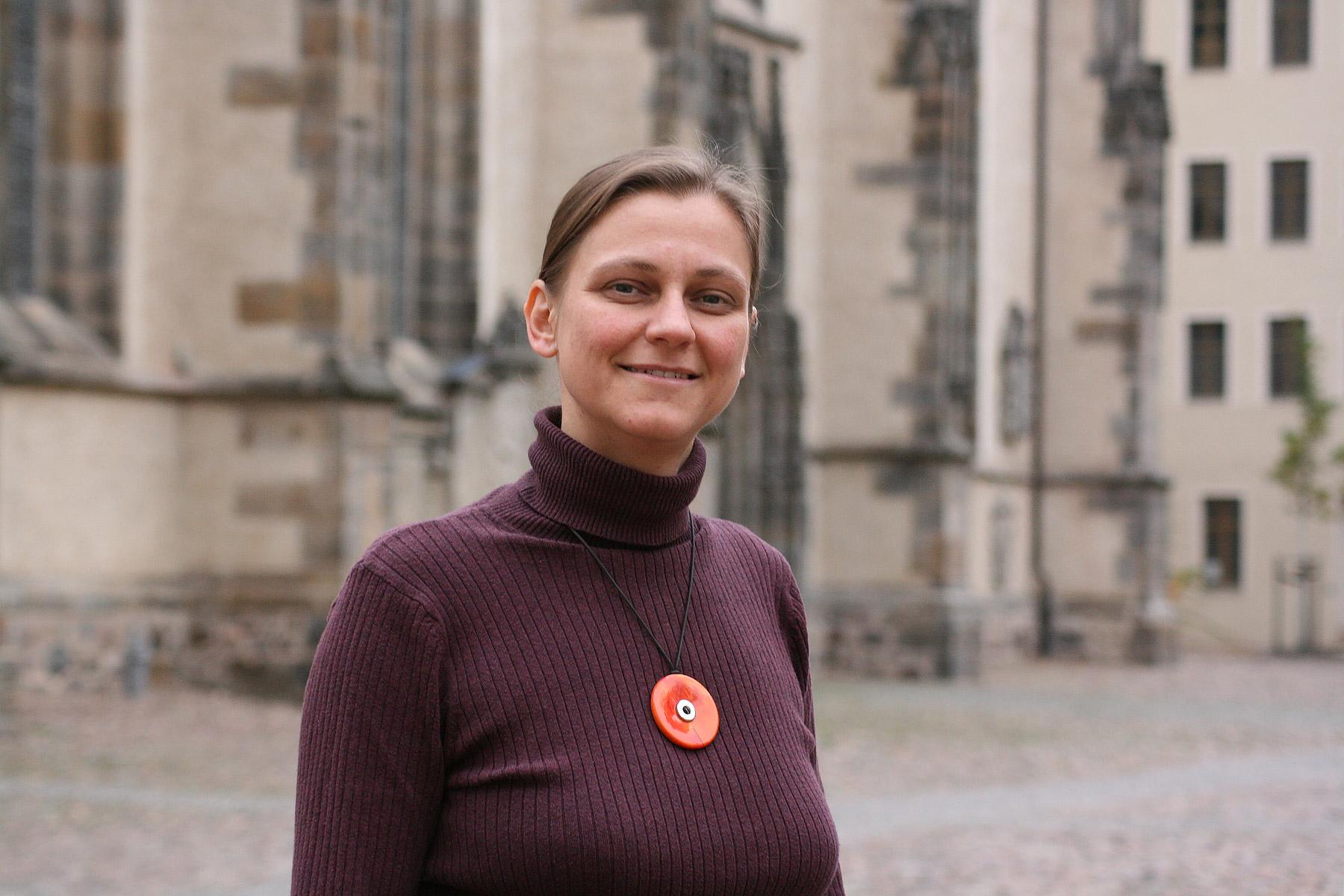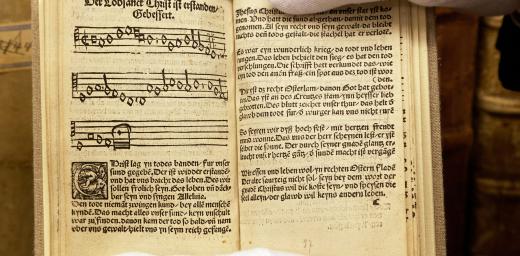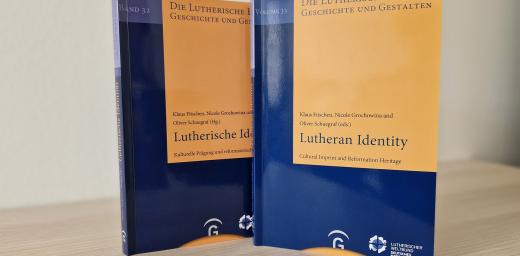A long tradition of training lay and ordained church workers

Dr. Nikola Schmutzler, pastor of the Evangelical Lutheran Church of Saxony. Photo: LWF/A. Weyermüller
Interview with Dr. Nikola Schmutzler, Lutheran pastor in Saxony
(LWI) – Dr. Nikola Schmutzler (41) combines academic profile and a parish pastorate with great passion and enthusiasm. A pastor of the Evangelical Lutheran Church of Saxony, she recently took part in a seminar with 20 other theologians from all over the world. Lasting from 3 to 17 November, it was the 18th international theological seminar organized by the LWF Center in Wittenberg. In a conversation with Lutheran World Information she reports on theological formation and education for non-theologians, Lutheran worship and the value of international encounters.
Besides your work as a parish pastor, you lecture in the course for lay preachers offered by four regional churches in the eastern part of Germany. Could you tell us something about this model of theological formation and education?
The Evangelical Lutheran Church of Saxony has a long tradition in theological training for non-theologians going back to 1922. But in 1960 an academy known as KFU was founded for distance learning in the church. That was a reaction to the repressive church policy of the then German Democratic Republic, which discouraged educational activities and strictly regulated theology courses at university. The aim was to counteract the subsequent lack of theology students and theologically trained members of congregations. And still today, the aim of the KFU course is to train lay members of congregations in theology so that they can take on the voluntary ministry of proclaiming the Word.
In this study course – which is quite demanding, in my opinion – the participants receive comprehensive theological training over a period of almost three years. The course runs on a part-time basis, and covers tuition phases attended by the whole group, personal study, home assignments and preaching practice. That calls for a lot of commitment by the participants. As this training is important to us as well, we lecturers give our classes free of charge. This effort is worth it: in my church district of Auerbach there are 11 lay preachers, besides the 17 pastors – that is an enormous help.
Worship services are a top priority then?
Indeed! And in the Lutheran tradition we attach great importance – besides the sermon – to taking care of the liturgy. I personally experience that in the institution of the sacraments, which point to the immediate presence of God. Then I deeply sense the special holiness of the moment.
On top of that, being Lutheran means being active as mature Christians in our congregations and our society. This is particularly important in view of strong evangelical, traditionalist currents in the church of Saxony. In my church council we spend an hour at the start of every meeting discussing a biblical and spiritual topic. In so doing, we engage with the Bible, our confession and theological subjects in a well-founded and nuanced way. Thanks to this, the church council can actually take over the spiritual leadership of the congregation. After that, we always find enough time for the other leadership responsibilities, without the meetings lasting too long.
During the seminar in Wittenberg you had a special time of theological reflection for yourself. What are you taking home with you from this time?
I take with me the realization that Lutheran theology is always a compelling theology. It is about proclaiming God’s “For you!” I am expected to accept that (or, to use a pithy phrase: grasp it in faith) as “for me!”
Further, I take home the great diversity of Lutheran churches and congregations. The problems others have to grapple with have become much more tangible than just hearing about them in the news. I can only gasp in amazement when I hear reports about 1.500 people going to communion at an African service.
It was wonderful to see that Christians from all over the world are connected and can become one through God’s Word and sacraments.





